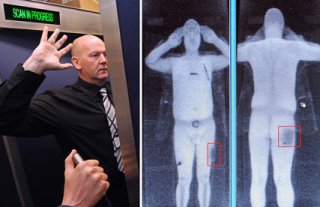
By: Esther M. Gentile
Intensified airport screening of citizens from 14 nations who are heading to the United States is “basically a proxy for racial profiling,” a spokesman for the American Civil Liberties Union (ACLU) said Monday.
In a briefing organized by the Arab American Institute, representatives from Arab-American and civil rights groups voiced concerns about the new regulations announced Jan. 3 by the Transportation Security Administration (TSA). Individuals traveling from or through Afghanistan, Algeria, Cuba, Iraq, Iran, Lebanon, Libya, Nigeria, Pakistan, Saudi Arabia, Somalia, Sudan, Syria, and Yemen will be automatically subjected to enhanced screening procedures, including full body searches and luggage inspection, before boarding inbound flights to the United States.
Michael German, a national security policy counsel with the ACLU Washington legislative office, criticized the policy of full-body pat downs or body scans for citizens of the 14 countries, most of them predominantly Muslim.
“Basically there are three parts to it,” German said. “One, that it’s unconstitutional, two, that it’s ineffective and three that, particularly in the case of terrorism, it’s actually counterproductive.
“And our concern is that it does, actually, violate American values,” said German, a former FBI agent, referring to the “secondary automatic screening” policy.
“It’s basically a proxy for racial profiling, and will be viewed as a proxy for racial profiling,” he said.
The Obama administration announced the policy after the thwarted terrorist attempt on Christmas Day when a Nigerian man attempted to blow up an airliner that was about to land in Detroit.
Dr. James Zogby, president of the Arab American Institute, cautioned that the security measures could have a cooling effect on U.S. relations with those countries.
“It’s not the bad guy who gets affected,” he said. “It’s everybody from those countries that wants to come and visit or that wants to come and do business or that wants to come and study, or that wants to come simply because they’ve always want to come to America – who now either go through an ordeal before they come, or simply make the decision not to come.”
Jumana Musa, policy director of the Rights Working Group, also warned against using broad sweeping measures when more precise tools may be more effective and less provocative.
“When the government broadly targets an entire community,” she asked, “are we really actually making ourselves safer?”

Leave a Reply
You must be logged in to post a comment.